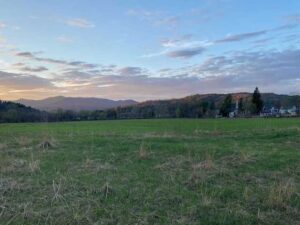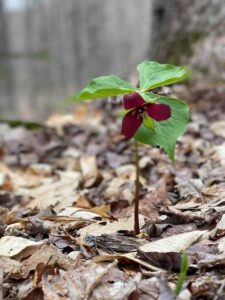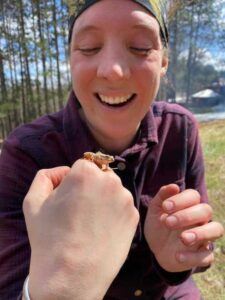 With the changing of seasons in New England, I have been reflecting on the small yet crucial changes that begin early in True North student’s experience. The mental and physical fortitude students gain along their journey takes time to develop. The beauty of wilderness is that new students will always be supported by more seasoned students, not to mention capable and compassionate field guides, setting the stage for possibility and hope for a different path forward. The first weeks for new students are all about observing routines, seeking comfort and safety in the peer group, making sure their basic needs are met, and identifying what was and was not working in their life at home.
With the changing of seasons in New England, I have been reflecting on the small yet crucial changes that begin early in True North student’s experience. The mental and physical fortitude students gain along their journey takes time to develop. The beauty of wilderness is that new students will always be supported by more seasoned students, not to mention capable and compassionate field guides, setting the stage for possibility and hope for a different path forward. The first weeks for new students are all about observing routines, seeking comfort and safety in the peer group, making sure their basic needs are met, and identifying what was and was not working in their life at home.
Alongside the student journey, I, as a therapist working primarily with cis gender adolescent girls, strive to scaffold the group experience in a way that empowers and encourages autonomy in young women, and reinforces the power of positive group culture. The wilderness presents natural challenges, and the process of navigating challenges creates a deep sense of self efficacy, self worth, and confidence. Each student is learning to care for themselves and others, and in turn, communicate assertively, identify and express emotions in a healthy way, and develop critical thinking and problem solving skills.
 In the first weeks of a student’s True North experience, I am looking out for “default patterns” in response to environmental challenges along with a student’s ability or desire to seek support and try something different. I may be sitting across from a student in session who struggles to open up to their peers and guides and does not want to burden anyone with their own needs. As a result, they have become stagnant in their progress and have not asked for help. At home this same student may have become depressed or increasingly anxious as they isolated themselves from their support system with each passing day. In wilderness, however, this more stoic student is held accountable to task and routine. Through the process, this student comes to learn that their peers ask for help all the time, that asking for help with the small things gives them practice in asking for help with the big, challenging or scary things in life.
In the first weeks of a student’s True North experience, I am looking out for “default patterns” in response to environmental challenges along with a student’s ability or desire to seek support and try something different. I may be sitting across from a student in session who struggles to open up to their peers and guides and does not want to burden anyone with their own needs. As a result, they have become stagnant in their progress and have not asked for help. At home this same student may have become depressed or increasingly anxious as they isolated themselves from their support system with each passing day. In wilderness, however, this more stoic student is held accountable to task and routine. Through the process, this student comes to learn that their peers ask for help all the time, that asking for help with the small things gives them practice in asking for help with the big, challenging or scary things in life.
The True North program structure is a vehicle for developing awareness into unhealthy patterns, and developing healthy coping skills. For instance, how do students manage tasks such as letter-writing, outdoor living skill mastery, and keeping gear organized? Is this similar to how they would pack their bag for school in the morning, track homework assignments, and manage their weekly schedule? If another chore or assignment is added to their plate, do they take it in stride or begin to struggle with the added weight? Is the unexpected spring snow storm going to disrupt a student’s entire day or are they learning to trust that they have the gear, peer support and grit to make it through? Students develop critical coping skills in the supported wilderness environment, that then are translated to challenges outside of True North – at home, school, and in future relationships.

A common theme I tend to observe in the initial stage of the program is that students seem to believe that I, as their therapist, am expecting consistent perfection and forward momentum. They are accustomed to the world they are growing up in, filled with unrealistic expectations of beauty in social media and a standardized ideal of success. They are attuned to a fast-paced life, filled with the constant distraction of technology and the ability to weigh their progress against others’, in other words, reassurance that they are on track, doing everything right. The first weeks of the program call on students to reorient their ideas around success, mainly what is their relationship to asking for help rather than internalizing the notion that they should and do know everything. I help students find self-empowerment by trusting that they do in fact know themselves best and teach the rest of the world about their needs.
What is the end result? While outcomes are unique and varied for the wilderness student, I often hear that the experience has provided a student with feedback in an environment free from distraction and disempowering constructs of success that exist in our society. Success in wilderness has much more to do with communication, vulnerability and working on oneself. It is about self introspection into past behaviors that no longer serve oneself, deepening relationships with others, and being open to growing as an individual. Students completing True North develop an internal locus of control, and launch as empowered young people ready to take on the world.


